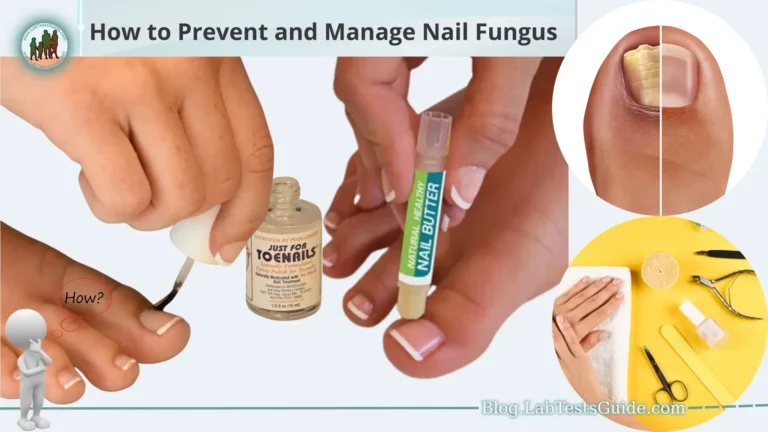Dry skin is a common dermatological issue that affects people of all ages and skin types. It occurs when the skin lacks sufficient moisture, leading to a range of uncomfortable symptoms such as itchiness, flakiness, and a tight, parched feeling. While occasional dryness can be manageable, persistent dry skin can become a chronic problem if left unaddressed. Therefore, understanding the causes of dry skin and adopting preventive measures and effective management strategies are essential for maintaining healthy, supple skin.

In this comprehensive guide, we will delve into various aspects of preventing and managing dry skin. We will explore the root causes of dryness, including environmental factors, lifestyle choices, and underlying health conditions. Additionally, we’ll discuss practical and actionable tips for keeping the skin adequately hydrated, choosing the right moisturizers, and developing a suitable skincare routine. Furthermore, we’ll explore the role of diet, home remedies, and professional assistance in combating dry skin. By the end of this guide, readers will have a solid understanding of how to nourish and protect their skin, promoting a radiant and hydrated complexion while minimizing discomfort and irritation associated with dry skin.
What Is Dry Skin?
Here are some key points to help you understand dry skin.
- Loss of Moisture: Dry skin occurs when the skin’s natural moisture barrier is compromised, resulting in reduced water content. This can lead to a dehydrated and rough texture.
- Common Symptoms: Typical signs of dry skin include itching, flaking, redness, tightness, and a feeling of roughness. In severe cases, the skin may crack and develop painful fissures.
- External Factors: Dry skin can be caused or exacerbated by external factors such as low humidity levels, cold weather, excessive sun exposure, harsh soaps, and frequent hot baths or showers.
- Internal Factors: Certain medical conditions, like eczema, psoriasis, and thyroid disorders, as well as aging, hormonal changes, and genetics, can contribute to dry skin.
- Impact of Age: Dry skin is more prevalent in older adults due to the skin’s reduced ability to retain moisture and produce natural oils.
- Geographical Location: People living in dry climates or regions with low humidity are more prone to developing dry skin.
- Lifestyle Choices: Certain lifestyle habits, such as excessive caffeine or alcohol consumption and smoking, can dehydrate the skin and worsen dryness.
- Inadequate Skincare: Using harsh or alcohol-based skincare products, failing to moisturize regularly, and over-exfoliating can disrupt the skin’s balance and lead to dryness.
- Effect on Skin Barrier: Dry skin weakens the skin’s protective barrier, making it more susceptible to external irritants and allergens.
- Risk Factors: Individuals with a history of eczema or a family history of dry skin conditions are more likely to experience dry skin.
How to Manage Dry Skin:
Here are some effective strategies and skincare tips to help you manage dry skin.
- Hydration: Drink an adequate amount of water throughout the day to keep your body and skin well-hydrated. Hydration from within plays a significant role in maintaining skin moisture.
- Gentle Cleansing: Use mild, soap-free cleansers that do not strip the skin of its natural oils. Avoid hot water, as it can further dry out the skin. Opt for lukewarm water instead.
- Moisturize Regularly: Apply a moisturizer suited for dry skin at least twice a day, especially after bathing or washing your face. Look for products containing hydrating ingredients like hyaluronic acid, glycerin, shea butter, or ceramides.
- Humidifiers: Use a humidifier in your home, especially during the dry winter months or in areas with low humidity. Humidifiers add moisture to the air, which can help prevent skin dehydration.
- Avoid Harsh Products: Stay away from skincare products that contain alcohol, fragrances, or other harsh chemicals, as they can irritate and worsen dry skin.
- Exfoliate Gently: Exfoliate your skin 1-2 times a week with a gentle scrub or exfoliating product to remove dead skin cells. This allows better absorption of moisturizers.
- Protect from Sun: Always wear sunscreen with at least SPF 30 to shield your skin from harmful UV rays, which can exacerbate dryness and cause premature aging.
- Choose the Right Fabrics: Opt for soft, breathable fabrics like cotton to avoid skin irritation caused by rough or synthetic materials.
- Shorter Showers: Limit your time in the shower and use mild, moisturizing shower gels. Long, hot showers can strip the skin of its natural oils.
- Pat Dry, Don’t Rub: After bathing, pat your skin dry gently with a soft towel instead of rubbing, as excessive rubbing can cause further irritation.
Preventive Measures:
- Hydration: Drink plenty of water throughout the day to maintain overall body hydration, which reflects on your skin’s moisture levels.
- Humidifiers: Use a humidifier in your living and working spaces, especially during dry seasons or in dry climates. Humidifiers add moisture to the air, preventing excessive evaporation of skin moisture.
- Gentle Cleansing: Opt for mild, soap-free cleansers when washing your face and body. Avoid hot water, as it can strip the skin of its natural oils.
- Moisturize Daily: Apply a suitable moisturizer for your skin type immediately after bathing or washing your face. Moisturizing helps lock in moisture and keeps the skin hydrated.
- Choose the Right Moisturizer: Look for moisturizers that contain hydrating ingredients like hyaluronic acid, glycerin, and ceramides. These ingredients help replenish and retain moisture in the skin.
- Sunscreen Protection: Always apply sunscreen with at least SPF 30 before going outside, regardless of the weather. Sunscreen protects the skin from harmful UV rays that can exacerbate dryness and lead to premature aging.
- Limit Hot Showers: Avoid prolonged exposure to hot water during baths or showers, as it can remove natural oils from the skin and contribute to dryness.
- Protect from Harsh Weather: In extreme weather conditions, protect your skin by wearing appropriate clothing, such as gloves, scarves, and hats, to shield against cold winds and harsh sun.
- Use Moisturizing Cleansers: When cleansing, choose products with added moisturizing properties. Avoid products that contain alcohol or harsh chemicals that may dry out the skin.
- Avoid Harsh Soaps: Use gentle, fragrance-free soaps or cleansers that are specifically formulated for sensitive or dry skin.
- Exfoliate Gently: Exfoliate your skin 1-2 times a week with a mild exfoliant to remove dead skin cells and promote better absorption of moisturizers.
- Stay Hydrated in Winter: During colder months, use a richer, oil-based moisturizer to create a protective barrier against cold and dry air.
Skincare Routine for Dry Skin:
Here’s a comprehensive skincare routine tailored specifically for dry skin.
Gentle Cleansing:
- Use a mild, hydrating cleanser to wash your face in the morning and evening.
- Avoid products with harsh ingredients like alcohol, sulfates, or fragrances, as they can further dry out the skin.
Exfoliation (1-2 times a week):
- Gently exfoliate your skin using a mild exfoliant to remove dead skin cells and promote cell turnover.
- Avoid aggressive scrubbing, as it can irritate the skin. Opt for chemical exfoliants with alpha hydroxy acids (AHAs) or beta hydroxy acids (BHAs).
Hydrating Toner:
- Apply a hydrating toner after cleansing to balance the skin’s pH and prepare it for better product absorption.
- Look for toners with ingredients like glycerin, hyaluronic acid, or rose water.
- Consider using a hydrating essence with ingredients like snail mucin or niacinamide to provide an extra layer of hydration.
Moisturize:
- Apply a rich, emollient moisturizer that is specifically formulated for dry skin.
- Look for ingredients like shea butter, ceramides, squalane, or natural oils (such as jojoba or argan oil) to lock in moisture and nourish the skin.
Sunscreen Protection:
- Apply a broad-spectrum sunscreen with at least SPF 30 daily, even on cloudy days.
- Sunscreen protects the skin from harmful UV rays and helps prevent further moisture loss.
Nourishing Masks and Treatments (1-2 times a week):
- Use hydrating sheet masks or moisturizing treatments to give your skin an extra boost of hydration.
- Consider using masks with ingredients like aloe vera, honey, or hyaluronic acid.
Nighttime Moisturization:
- Before bedtime, apply a thicker, overnight moisturizer or a facial oil to deeply hydrate the skin while you sleep.
- Night creams with anti-aging ingredients like retinol can also help improve skin texture and elasticity.
- Use a hydrating eye cream to target the delicate skin around the eyes, reducing the appearance of fine lines and wrinkles.
Lifestyle and Dietary Tips:
Here are some lifestyle and dietary tips for individuals with dry skin.
- Stay Hydrated: Drink an adequate amount of water throughout the day to keep your body and skin well-hydrated. Proper hydration supports skin moisture and elasticity.
- Balanced Diet: Consume a well-balanced diet rich in fruits, vegetables, whole grains, lean proteins, and healthy fats. These nutrients provide essential vitamins and minerals for skin health.
- Omega-3 Fatty Acids: Include foods rich in omega-3 fatty acids, such as fatty fish (salmon, mackerel, and sardines), flaxseeds, chia seeds, and walnuts. Omega-3s have anti-inflammatory properties and help maintain skin barrier function.
- Antioxidant-Rich Foods: Incorporate foods high in antioxidants, such as berries (blueberries, strawberries, and raspberries), leafy greens, and colorful vegetables. Antioxidants protect the skin from free radical damage and support a healthy complexion.
- Healthy Fats: Consume healthy fats from sources like avocados, olive oil, and nuts. These fats help keep the skin supple and prevent moisture loss.
- Limit Caffeine and Alcohol: Reduce consumption of caffeine and alcohol, as they can dehydrate the skin and worsen dryness.
- Smoking Cessation: Quit smoking, as it contributes to premature aging and damages the skin’s collagen and elastin fibers.
- Stress Management: Practice stress-reducing techniques such as meditation, yoga, deep breathing, or spending time in nature. Chronic stress can affect skin health and exacerbate dryness.
- Regular Exercise: Engage in regular physical activity, as it improves blood circulation, which can enhance the delivery of nutrients and oxygen to the skin.
- Avoid Hot Environments: Limit exposure to excessively hot environments, as heat can dehydrate the skin. Use fans or air conditioning in hot weather.
Home Remedies for Dry Skin:
- Coconut Oil: Apply virgin coconut oil to dry areas for its moisturizing benefits.
- Olive Oil: Use olive oil as a natural moisturizer after a shower to seal in moisture.
- Oatmeal Baths: Add colloidal oatmeal to a warm bath to soothe itchy and irritated skin.
- Aloe Vera Gel: Apply fresh aloe vera gel to alleviate dryness and redness.
- Honey Masks: Mix honey with olive oil and apply it as a mask for its humectant properties.
- Yogurt Mask: Apply plain yogurt as a mask to gently exfoliate and moisturize the skin.
- Milk Compress: Soak a cloth in cold milk and apply it as a compress to moisturize and soothe the skin.
- Almond Oil: Massage almond oil into the skin before bedtime for nourishment.
- Cucumber Slices: Place cucumber slices on dry patches for a cooling and hydrating effect.
- Green Tea Bags: Use cooled green tea bags on eyelids to reduce puffiness and hydrate the skin.
- Jojoba Oil: Apply jojoba oil to moisturize and balance oil production.
- Avocado Mask: Mash avocado with honey and apply as a mask for its nourishing properties
FAQs:
What causes dry skin?
Dry skin can be caused by various factors, including environmental factors like low humidity and cold weather, excessive bathing or hot showers, using harsh soaps and cleansers, certain medical conditions like eczema or psoriasis, aging, and genetics.
Is dry skin a serious condition?
Dry skin is typically not a serious medical condition, but it can be uncomfortable and may lead to itching, flaking, and redness. In some cases, severe dry skin can lead to skin cracks and fissures, increasing the risk of infection.
How can I prevent dry skin during winter?
To prevent dry skin during winter, use a humidifier indoors, avoid long, hot showers, moisturize regularly with a richer, oil-based moisturizer, and wear protective clothing to shield against cold winds.
What type of moisturizer is best for dry skin?
Look for moisturizers that contain hydrating ingredients like hyaluronic acid, glycerin, shea butter, or ceramides. Oil-based moisturizers or facial oils can also provide extra nourishment for dry skin.
Can my diet affect dry skin?
Yes, a balanced diet with sufficient nutrients, healthy fats (like omega-3s), and antioxidants can support skin health and hydration. Drinking enough water is also crucial for maintaining skin moisture.
Are there any specific foods to avoid for dry skin?
Limiting caffeine and alcohol intake can help prevent further dehydration of the skin. Additionally, avoiding foods high in processed sugars and unhealthy fats may benefit overall skin health.
Can stress worsen dry skin?
Yes, stress can worsen dry skin. When stressed, the body releases cortisol, which can lead to inflammation and disrupt the skin’s natural barrier, resulting in dryness and irritation.
Can dry skin be a sign of an underlying health condition?
Yes, in some cases, dry skin can be a symptom of an underlying health issue, such as thyroid disorders or certain autoimmune conditions. If you have persistent dry skin or other concerning symptoms, consult a healthcare professional.
What should I do if over-the-counter products don’t help my dry skin?
If over-the-counter products do not provide relief for your dry skin, consider consulting a dermatologist. They can identify the underlying cause of your dryness and recommend appropriate treatments or prescription products.
Conclusion:
In conclusion, dry skin is a common skin condition that can cause discomfort and affect individuals of all ages. By understanding the various factors that contribute to dry skin, such as environmental influences, lifestyle choices, and underlying health conditions, it becomes possible to take proactive preventive measures and adopt an effective skincare routine. Keeping the skin well-hydrated through proper moisturization, gentle cleansing, and sun protection, along with incorporating beneficial lifestyle habits like staying hydrated and maintaining a balanced diet, can significantly help manage dry skin. Moreover, utilizing natural home remedies can provide additional nourishment and relief. For persistent or severe cases of dry skin, seeking professional advice from a dermatologist is essential for personalized and targeted treatment. By following these guidelines, individuals can achieve healthier, more supple skin, promoting overall skin wellness and a renewed sense of confidence and comfort.






